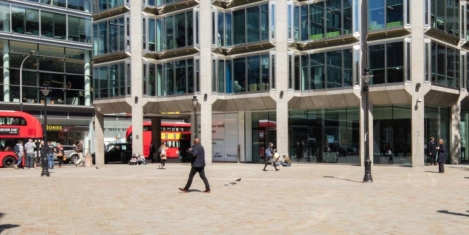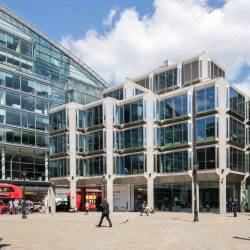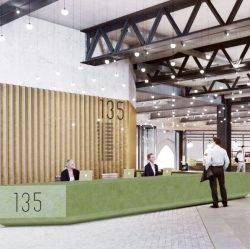To provide the best experiences, we use technologies like cookies to store and/or access device information. Consenting to these technologies will allow us to process data such as browsing behaviour or unique IDs on this site. Not consenting or withdrawing consent, may adversely affect certain features and functions.
The technical storage or access is strictly necessary for the legitimate purpose of enabling the use of a specific service explicitly requested by the subscriber or user, or for the sole purpose of carrying out the transmission of a communication over an electronic communications network.
The technical storage or access is necessary for the legitimate purpose of storing preferences that are not requested by the subscriber or user.
The technical storage or access that is used exclusively for statistical purposes.
The technical storage or access that is used exclusively for anonymous statistical purposes. Without a subpoena, voluntary compliance on the part of your Internet Service Provider, or additional records from a third party, information stored or retrieved for this purpose alone cannot usually be used to identify you.
The technical storage or access is required to create user profiles to send advertising, or to track the user on a website or across several websites for similar marketing purposes.
 London, Paris and Stockholm are among the major cities featured in a new research report from Cushman & Wakefield (registration) into the coworking and flexible office sectors, which pinpoints future demand and the next likely growth hotspots across Europe. According to the report, coworking’s rapid expansion in recent years has quickly disrupted global office markets. The report charts the current state of the sector, the emergence of flexible working space across continental Europe and where future growth will occur. (more…)
London, Paris and Stockholm are among the major cities featured in a new research report from Cushman & Wakefield (registration) into the coworking and flexible office sectors, which pinpoints future demand and the next likely growth hotspots across Europe. According to the report, coworking’s rapid expansion in recent years has quickly disrupted global office markets. The report charts the current state of the sector, the emergence of flexible working space across continental Europe and where future growth will occur. (more…)




















 Flexible workers claim to work more effectively than those working a traditional ‘nine-to-five’, with a quarter of respondents (27 percent) in a recent poll saying they work longer hours in their new flexible working routine than they did when they worked normal office hours. The research, which was commissioned by the AAT (Association of Accounting Technicians) found that flexible workers think they put in almost seven hours more each week on average than they did previously. The research, which looked at the productivity of a group of workers who set their own hours or working location against a group of those who are not doing so, found that the former benefit from feeling happier and less stressed.
Flexible workers claim to work more effectively than those working a traditional ‘nine-to-five’, with a quarter of respondents (27 percent) in a recent poll saying they work longer hours in their new flexible working routine than they did when they worked normal office hours. The research, which was commissioned by the AAT (Association of Accounting Technicians) found that flexible workers think they put in almost seven hours more each week on average than they did previously. The research, which looked at the productivity of a group of workers who set their own hours or working location against a group of those who are not doing so, found that the former benefit from feeling happier and less stressed. 
 Take-up of office space in Central London has shown a year-on-year increase of 30 percent, reaching 1.3m sq ft in October, according to CBRE. Take-up was strong from creative firms, representing 18 percent of all deals, including the largest deal of the month which saw McCann Erickson take 146,400 sq ft at 135 Bishopsgate EC2. Flexible office operators took 122,300 sq ft of space during the month, bringing the proportion of take-up represented by the flexible office sector in the last 12 months to 19 percent. The largest flex acquisition in October saw Landmark Spaces acquire 37,800 sq ft at Portman House in the West End.
Take-up of office space in Central London has shown a year-on-year increase of 30 percent, reaching 1.3m sq ft in October, according to CBRE. Take-up was strong from creative firms, representing 18 percent of all deals, including the largest deal of the month which saw McCann Erickson take 146,400 sq ft at 135 Bishopsgate EC2. Flexible office operators took 122,300 sq ft of space during the month, bringing the proportion of take-up represented by the flexible office sector in the last 12 months to 19 percent. The largest flex acquisition in October saw Landmark Spaces acquire 37,800 sq ft at Portman House in the West End. 










March 14, 2019
Mobile working is a recipe for business success
by Sally Elliott • Comment, Technology, Workplace design
(more…)